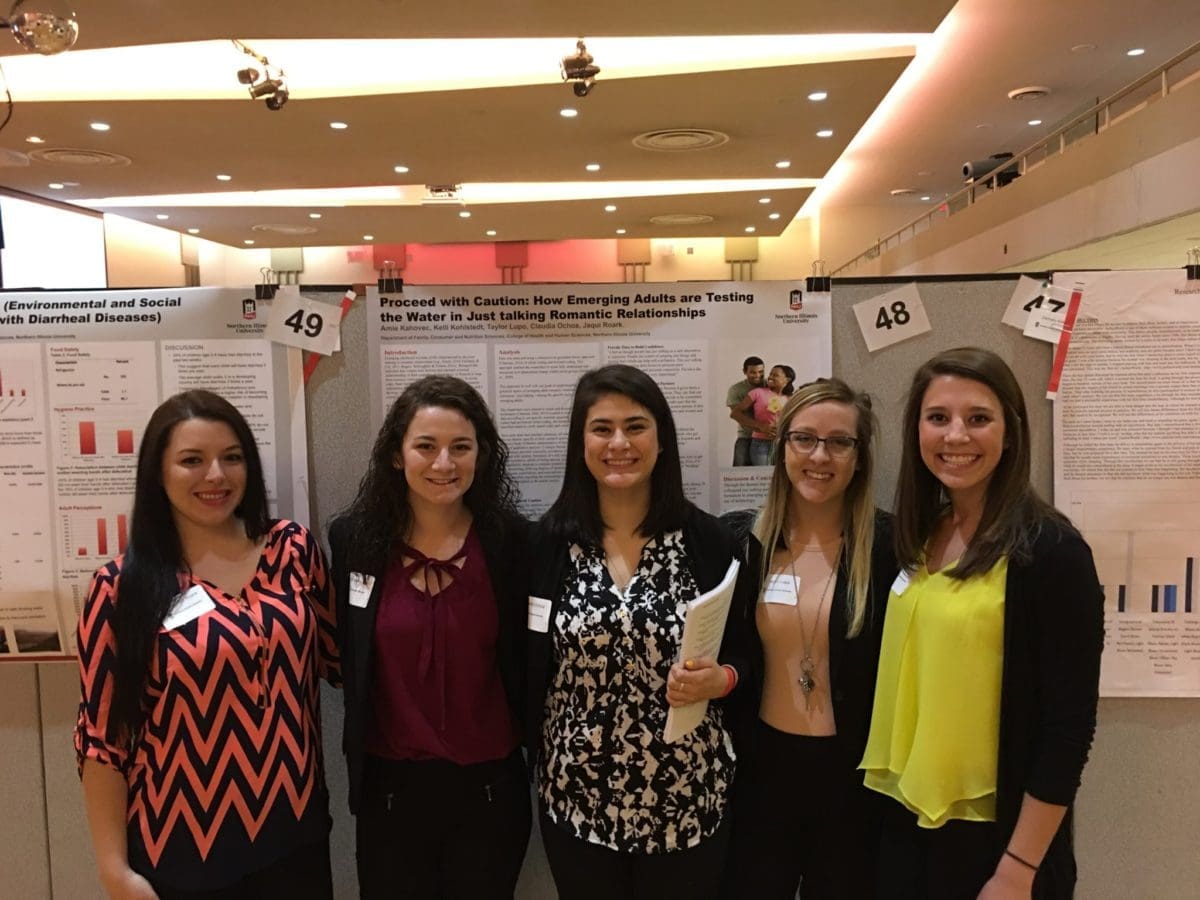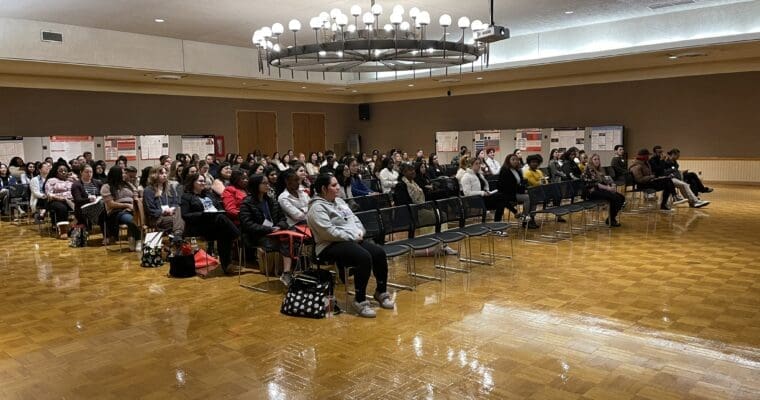On April 25th five of the research members presented at the Northern Illinois University Undergraduate Research and Artistry Day (URAD). It all started with volunteers from the team to dedicate time to create our poster for URAD 2017. We collaborated with Dr. Sibley to make a poster that was both creative and informative about our research. Each of us picked a portion of the poster to present on. After the poster was printed, Dr. Sibley and a member of the research team went and picked up the poster to make sure it looked great, and it did!
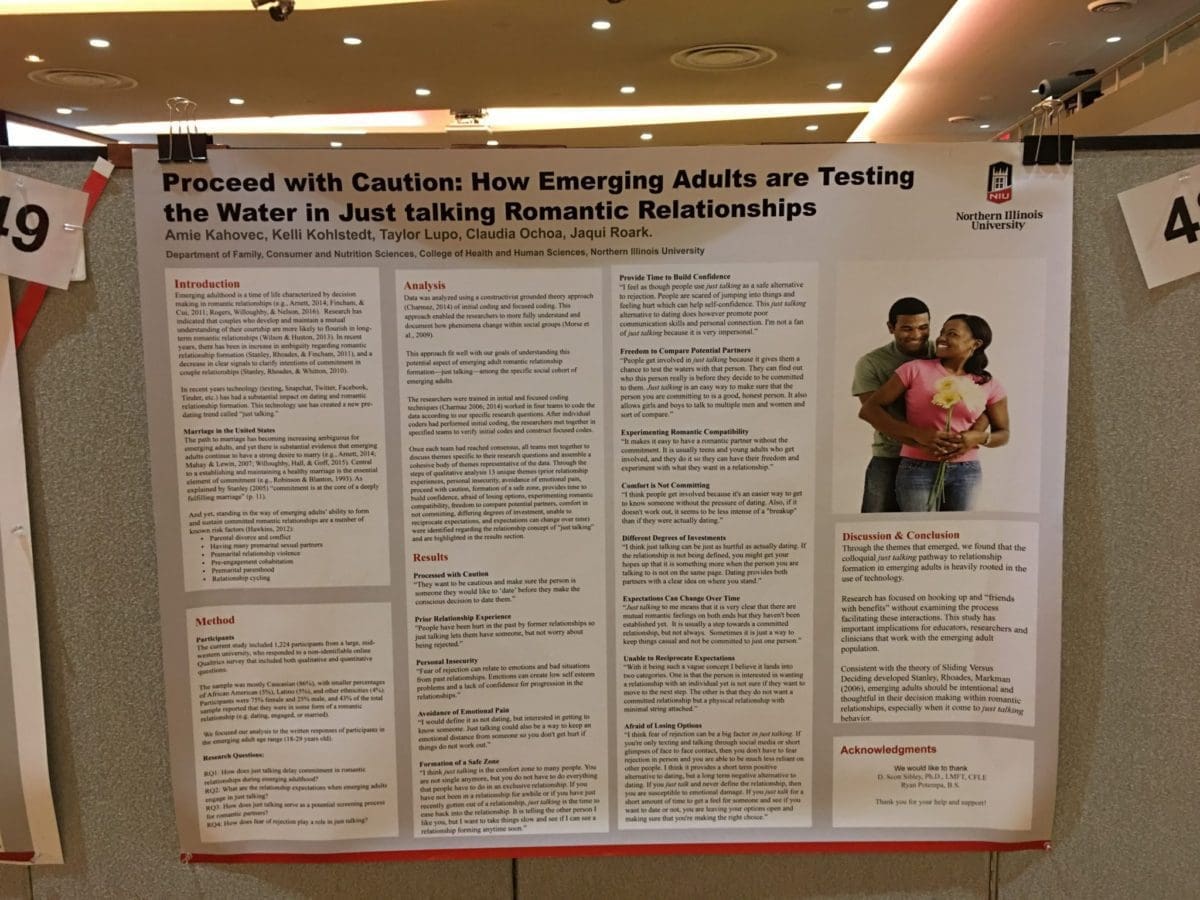
The day of URAD, the group met up with Dr. Sibley and walked over to the Holmes Student Center on campus together to get checked in. We got registered and found our spot to hang our poster! We got all set up and were ready to present. The research team soon became the spotlight as the newsletter for the College of Health and Human Sciences (CHHS) wanted to take our picture. A couple of the research members also were interviewed about their experiences on the research team which were included in a CHHS news article!
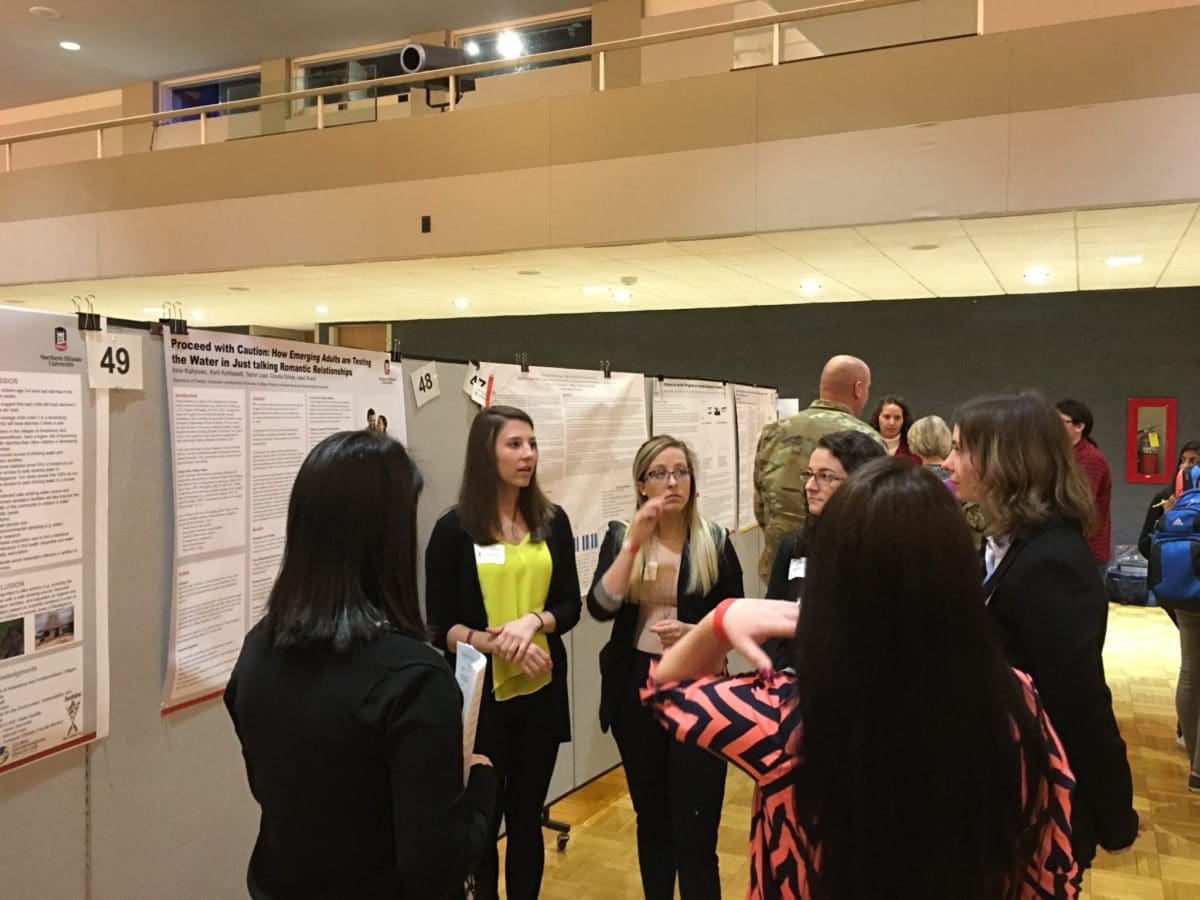
Each member who presented took a portion of the poster to talk about. The presentation started with discussing the introduction of the research topic. We discussed how our focus of research is commitment within emerging adults and this new stage of dating called just talking. We showed the common risk factors that may stand in the way for emerging adults to sustain committed relationships.
One important idea to remember is that although the path to marriage is more ambiguous there is substantial evidence that emerging adults still have a strong desire to marry (e.g., Arnett, 2014; Mahay and Lewin, 2007; Willoughby, Hall, & Goff, 2015).
Next we discussed our method. This included discussion our participants, and our research questions which are as follows:
RQ1 – How does just talking delay commitment in romantic relationships during emerging adulthood?
RQ2 – What are the relationship expectations when emerging adults engage in just talking?
RQ3 – How does just talking serve as a potential screening process for romantic partners?
RQ4 – How does fear of rejection play a role in just talking?
Next we discussed how we analyzed the research data. We used a constructivist grounded theory and each research member who was involved in analysis was trained in initial and focused coding techniques to best understand underlying themes in the research gathered. Thirteen themes surfaced from the research which another one of the group members discussed. The themes include:
- Proceed with Caution
- Prior Relationship Experience
- Personal Insecurity
- Avoidance of Emotional Pain
- Formation of a Safe Zone
- Provide Time to Build Confidence
- Freedom to Compare Potential Partners
- Experimenting Romantic Compatibility
- Comfort in Not Committing
- Differing Degrees of Investment
- Expectations Can Change Over Time
- Unable to Reciprocate Expectations
- Afraid of Losing Options
We finished up our presentation with our discussion and conclusion section where we discussed about just talking is strongly impacted by the use of technology. We also discussed the importance of being intentional when it comes to making decisions in romantic relationships which is consistent with the Inertia Theory (Sliding vs. Deciding), developed by Stanley, Rhoades, Markman (2006).
It was exciting to present our research to judges, fellow students, professors and even those from the community. People seemed to really relate to the information and it was great to interact with individuals while presenting on new research. It was a great learning experience presenting to the NIU community!
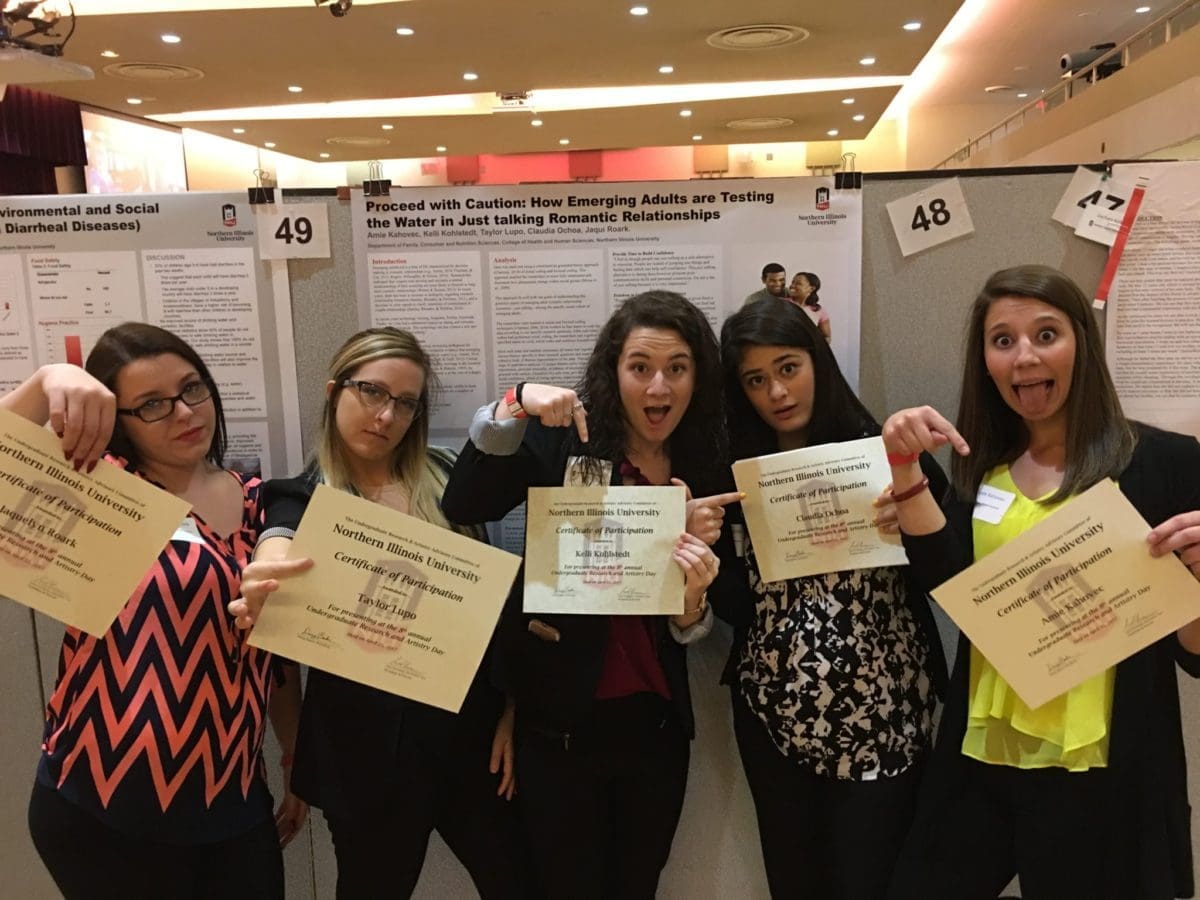
References
- Arnett, J. J. (2014). Emerging adulthood: The winding road from the late teens through the twenties (2nd ed.). New York: Oxford University Press.
- Mahay, J., & Lewin, A. C. (2007). Age and the Desire to Marry. Journal of Family Issues, 28, 5, 706-723.
- Stanley, S. M., Rhoades, G. K., & Markman, H. J. (October 01, 2006). Sliding Versus Deciding: Inertia and the Premarital Cohabitation Effect. Family Relations, 55, 4, 499-509.
- Willoughby, B. J., Hall, S. S., & Goff, S. (2015). Marriage Matters But How Much? Marital Centrality Among Young Adults. The Journal of Psychology, 149, 8, 796-817.
Hi my name is Taylor Lupo. I am a first year graduate student in the Marriage and Family Therapy Program at NIU. I love to hang out with my friends and golf in my free time. I also enjoy cooking and learning new dishes to make. I hope to continue to write blog posts, writing on future publications and being involved with future research surveys and focus groups!
